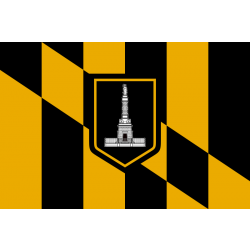
Baltimore’s nursing profession has four distinct roles: certified nursing assistant (CNA), licensed practical nurse (LPN), registered nurse (RN), and advanced practice registered nurse (APRN). Responsibilities, education, and compensation vary significantly by role.
The nursing assistant role is the most junior. CNA certificate programs generally require just a few months of focused study. To achieve certification as a nursing assistant, candidates must pass a state-administered examination at the conclusion of their program. Baltimore’s CNAs earn a median annual salary of $27,500.
LPNs are more senior than CNAs and thus require a longer certificate program, typically 12-18 months in length. Candidates must pass the NCLEX-PN national examination to attain licensure. Baltimore’s LPNs earn roughly $52,000 per year on average.
RNs carry significant autonomy in directing patient care and often manage teams of LPNs and CNAs. Maryland’s RNs may pursue one of three education pathways: associate degree in nursing (ADN), bachelor of science in nursing (BSN), or direct-entry master of science in nursing (MSN). All candidates must pass the NCLEX-RN national examination to attain licensure. Baltimore’s RNs earn over $71,000 on average. BSN-educated nurses often receive top-quartile pay of $84,000 or more per year.
APRNs fill specialized nursing roles like nurse anesthetist, nurse midwife, or nurse practitioner. Most APRN candidates complete a master’s degree program at a local university, requiring one to three years of study. Baltimore’s APRNs frequently earn over $100,000 annually. The city’s nurse anesthetists do particularly well, receiving a median annual salary of $180,000.
The demand for nurses in Baltimore is steadily increasing. Newly minted nurses can seek employment with the city’s major healthcare providers, including Mercy Medical Center and University of Maryland Medical System.
2024 NURSING SCHOOL RANKINGS
For our 2024 rankings, the research team at Nursing Schools Almanac collected data on nearly 3,000 nursing schools and campuses throughout the United States. We evaluated each school on three dimensions:
- The institution’s academic prestige and perceived value
- The breadth and depth of nursing programs offered
- Student success, particularly on the NCLEX licensure examination
We then combined these assessments into an overall score and ranked the schools accordingly. For a detailed description of our assessment methodology and dimension weights, please see here.
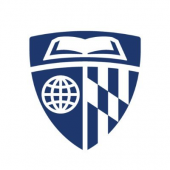
#1: Johns Hopkins University
The Johns Hopkins School of Nursing is ranked among the top three MSN, DNP, and online nursing programs by U.S. News & World Report. The school has also earned three consecutive NLN Center of Excellence designations for enhancing student learning and professional development. Johns Hopkins educates approximately 1,200 diverse nursing students, including 500 fulltime and 700 parttime students. The university recently transitioned from a prelicensure BSN program to a direct entry MSN program. The first five graduating classes of the direct entry MSN have scored a stellar 95% NCLEX pass rate. Johns Hopkins offers two other MSN tracks, a DNP with seven advanced practice specializations, and a doctor of philosophy (PhD) in nursing.

#2: University of Maryland
The University of Maryland School of Nursing (UMSON) currently enrolls nearly 2,000 nursing students. The university has received a top-ten ranking from U.S. News & World Report in at least ten different nursing specialty areas. UMSON also places #13 in NIH nursing research funding over the past decade. The school graduates approximately 300 prelicensure BSN students and another 100 direct entry MSN students annually. These individuals have passed the NCLEX exam at an impressive 89% first-attempt rate over the past decade. UMSON has 154 faculty members (136 of whom are fulltime), engages with more than 700 faculty associates and clinical preceptors, and offers students access to four organized research centers.
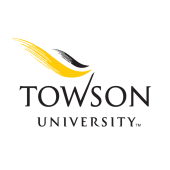
#3: Towson University
The Department of Nursing at Towson University has a unique dual-enrollment program that allows students to enroll simultaneously in an ADN program at a participating community college and the BSN program at Towson University. Students in this accelerated year-round program can earn both degrees in just 2.5 years. Towson also offers a traditional BSN program that graduates 150-200 prelicensure candidates each year. These students have averaged an 87% first-time NCLEX pass rate over the past decade. Nurses who already possess a BSN degree may enroll in Towson’s nursing education certificate program or its MSN degree program. MSN students take classes together one day each week, making this the only graduate nursing program in Maryland organized as a fulltime cohort.
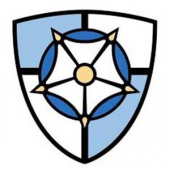
#4: Notre Dame of Maryland University
Notre Dame of Maryland University (NDMU) was founded by the School Sisters of Notre Dame in 1895. The university’s School of Nursing offers several CCNE-accredited programs at the baccalaureate and master’s degree levels. Undergraduates can pursue one of three BSN pathways: traditional, accelerated second degree, and RN-to-BSN (either campus-based or online). The prelicensure BSN pathways launched a few years ago, and students have since averaged an 84% first-time pass rate on the NCLEX licensure exam. At the graduate level, NDMU offers nursing administration and nursing education tracks in both its MSN degree program and its post-MSN certificate. Nursing students learn and work in the Center for Caring with Technology, which includes simulation labs equipped with computer-powered human simulator mannequins. This facility provides a realistic and risk-free environment for students to practice nursing skills and develop clinical reasoning.

#5: Stevenson University
The Sandra R. Berman School of Nursing and Health Professions at Stevenson University offers traditional BSN, associate-to-bachelor’s (ATB), RN-to-BSN, MSN, and RN-to-MSN programs. The traditional BSN program features small class sizes and clinical courses beginning in junior year. Over the past decade, BSN graduates have achieved an 85% pass rate on the NCLEX-RN licensure exam. The ATB program allows students to begin courses toward a baccalaureate degree in nursing at Stevenson while they are simultaneously completing their associate degree in nursing at another institution. The RN-to-BSN and MSN programs are both offered online, and the RN-to-MSN pathway is available in both hybrid and fully online formats.
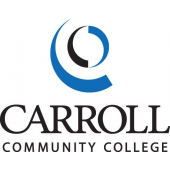
#6: Carroll Community College
Carroll Community College just celebrated its 25th anniversary. The college serves more than 11,000 credit and noncredit students across a variety of program areas. Nursing is one of the school’s five most popular majors. Carroll offers a practical nursing certificate and an associate of science degree in nursing. The AS nursing program conducts both a traditional pathway and an LPN-to-RN bridge option. The college also holds dual enrollment agreements with five partner institutions including Frostburg State University, Towson University, and the University of Maryland. Dually enrolled students can earn their BSN degree faster by taking courses concurrently at Carroll and the partner university. Across all programs, nursing graduates enjoy excellent outcomes. Over the past decade, LPN graduates have achieved a stellar 98% pass rate on the NCLEX-PN licensure exam. AS graduates have averaged an 87% pass rate on the NCLEX-RN licensure exam during that same timeframe.
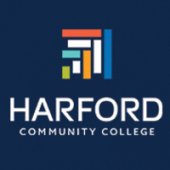
#7: Harford Community College
Harford Community College enrolls approximately 2,000 fulltime students, 7,500 part-time students, and 11,000 continuing education students annually. Among the school’s many program offerings is an associate of science degree that prepares students for initial registered nursing licensure. This program offers two tracks: a traditional 70-credit course of study and an LPN-to-RN transition pathway. The latter option enables licensed practical nurses to join the nursing program in the second semester and to challenge some of the second-semester coursework. Across both tracks, Harford Community College graduates between 100 and 150 associate degree students annually. Over the past decade, these nursing students have averaged an 89% first-time pass rate on the NCLEX licensure examination.
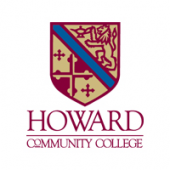
#8: Howard Community College
Howard Community College leads one of the largest nursing education programs in Maryland. The college graduates approximately 130 students annually from its flagship ADN program, with a strong 85% first-time pass rate on the NCLEX-RN licensure exam over the past decade. The associate degree program is noted for its flexibility, offering both a traditional two-year pathway and an accelerated 14-month option. HCC also offers career bridge opportunities for existing LPNs, paramedics, and military personnel to earn advanced standing. Graduates can transfer directly into the RN-to-BSN programs at six state universities (including the prestigious University of Maryland), as well as the private Stevenson University (previously known as Villa Julie College). HCC also offers an 11-month practical nursing certificate program. Although smaller in size with approximately a dozen graduates annually, the LPN program has an impressive 93% NCLEX-PN pass rate over the past decade. Five of the last seven graduating classes scored a perfect 100% NCLEX-PN pass rate.

#9: Coppin State University
Coppin State University is a historically black institution, part of the University System of Maryland and a member-school of the Thurgood Marshall College Fund. Overall, the university conducts approximately thirty undergraduate degree programs and a dozen graduate degree programs. The Helene Fuld School of Nursing offers several undergraduate pathways including a traditional prelicensure BSN, an accelerated second degree, and an RN-to-BSN degree completion program. The school also provides two options for aspiring family nurse practitioners, with both an MSN degree and a post-master’s certificate in this specialty field. In 2015, the Helene Fuld School of Nursing launched Coppin State’s first doctoral program, a post-master’s doctor of nursing practice. The DNP curriculum is presented in traditional, hybrid, and online formats with both a fulltime option (three courses per semester) and a part-time option (two courses per semester).
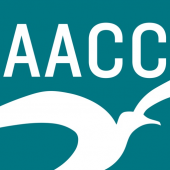
#10: Anne Arundel Community College
Anne Arundel Community College is the largest single-campus community college in Maryland, serving nearly 40,000 students across more than 225 programs of study. The college offers several pathways for aspiring nurses, including a certificate in practical nursing, a traditional associate of science (AS) degree in professional nursing, and a bridge AS program that awards advanced placement to LPNs, paramedics, and veterans. AACC also provides two transfer degree options – one nursing-specific and one general – that allow students to transition seamlessly to a four-year institution upon graduation. Nursing students consistently enjoy excellent outcomes. The LPN certificate program has averaged an impressive 98% first-time NCLEX-PN pass rate over the past decade. The AS program typically graduates more than 100 students annually, with a stellar 95% NCLEX-RN pass rate over the past decade.
